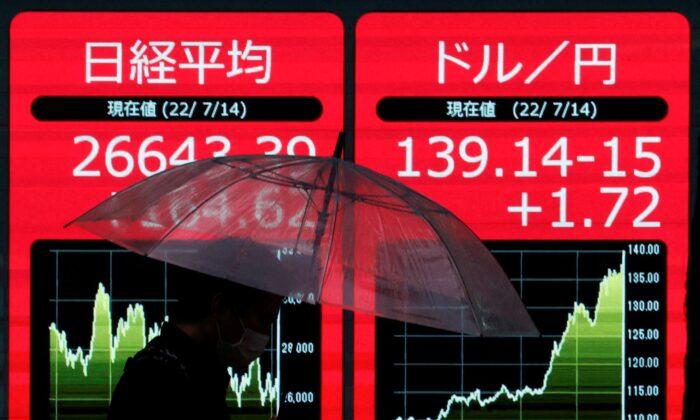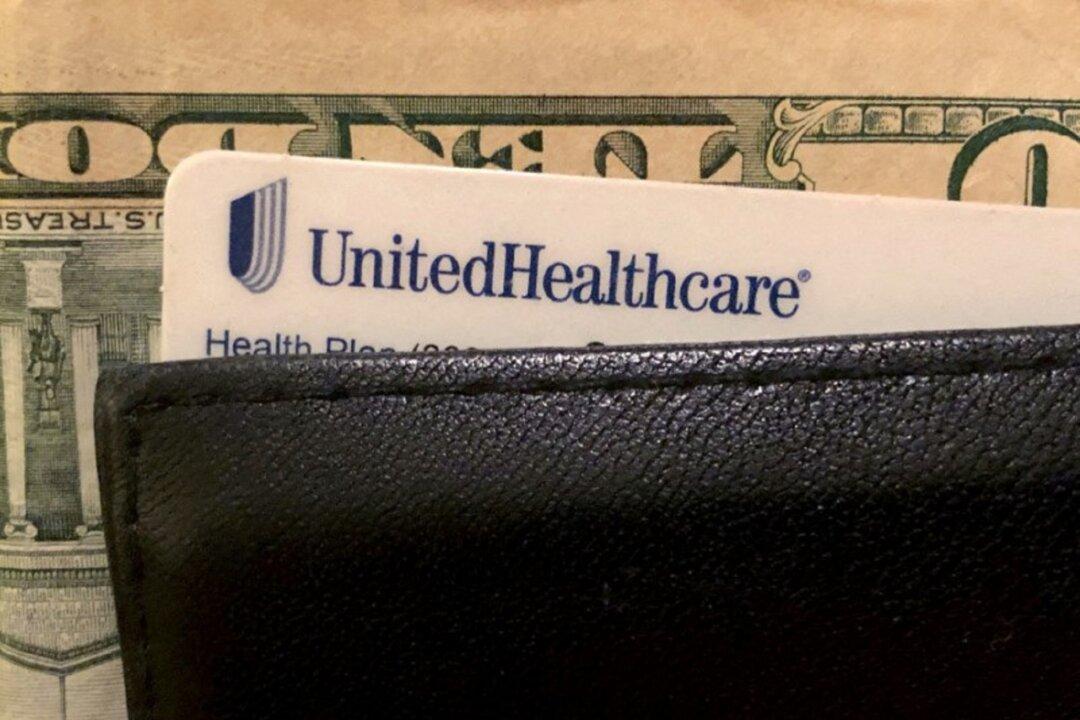LONDON—European shares opened lower, Treasuries held on to gains and the dollar was nursing heavy losses on Friday ahead of U.S. non-farm payrolls data, the next big test for investors looking for more signs of a rates policy shift from the Federal Reserve.
Data overnight including falling U.S. job openings and contracting U.S. manufacturing activity, raised fresh hopes of easing cost pressure and added to evidence that Fed rate hikes may have cooled the economy.
But signs of a shift in the Fed’s tone could not assuage broader economic concern. European Central Bank President Christine Lagarde warned on Friday that some European governments’ fiscal policies could lead to excess demand, and that fiscal and monetary policies need to work in sync for sustainable, balanced economic growth.
Bruno Schneller, managing director at INVICO Asset Management, said while stocks have risen recently, the most important factor was quantitative tightening—a process in which Fed winds down the bonds on its balance sheet.
“Global markets have been hyperfocused on the Fed’s pace of hikes,” said Schneller.
“We think the damage is not done yet. All the central bank liquidity that has gone in and out of the economic system has a 70 percent correlation to equity market returns and the liquidity drain will be hard to fight.”
Schneller expected stock markets to be 10 percent lower by year-end and to tumble further by the end of the first quarter of 2023.
European stocks slipped, with London’s FTSE down 0.3 percent, German stocks rose by just over 0.3 percent while France’s blue-chip the CAC 40 fell 0.31 percent.
Non-farm Payrolls
Economists polled by Reuters expect data out at 1330 GMT to show the U.S. economy created 200,000 new jobs in November, the smallest number since December 2020. Payrolls rose by 261,000 in October.Alan Ruskin, macro strategist at Deutsche Bank, said if the nonfarm payrolls increased by 50,000–150,000 in November, that would be favorable for bonds and equities and keep the U.S. dollar trading lower.
Futures fully price in 50 basis points rate hike at the Fed’s December policy meeting, while rates are now expected to peak around 4.75 percent to 5 percent by mid next year, compared with 5 percent to 5.25 percent previously.
Investors were also watching for more signs that China is easing its zero-COVID policy, and whether China would contribute more to global growth next year amid a looming global recession.
In bond markets, Treasury yields fell for a third straight day.
The yields on benchmark 10-year Treasury notes fell to 3.51 percent, near lows not seen since turmoil in UK markets in September pushing yields in other major bond markets higher.
The two-year Treasury yield, which rises with traders’ expectations of higher Fed fund rates, fell to its lowest level in almost two months at 4.204 percent and was last down around 5 basis points on the day.
And in currency markets, the U.S. dollar wallowed near five-month lows against a basket of other major currencies. It was set for a 1.4 percent weekly drop.
The euro hit a fresh five-month high just above $1.05, while the Japanese yen scaled a new three-month high against the U.S. dollar.
In the oil market, prices seesawed ahead of a key meeting of producing countries over the weekend. U.S. crude oil futures traded down to $81.07 per barrel, after surging to a two-week high of $83.34 in the previous session on a softer dollar.
Brent crude futures also rose slightly to $86.90 per barrel.
Spot gold rose to $1800.10 per ounce.





